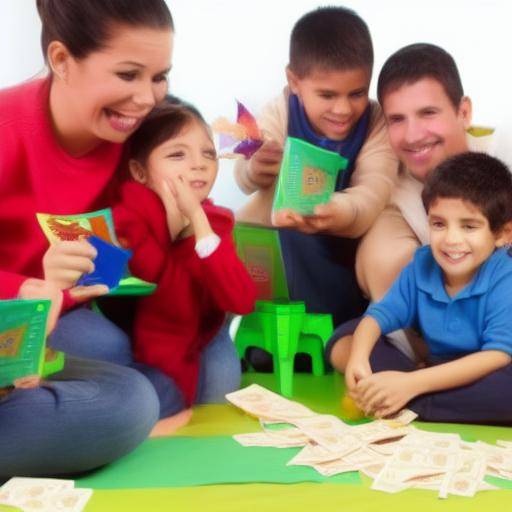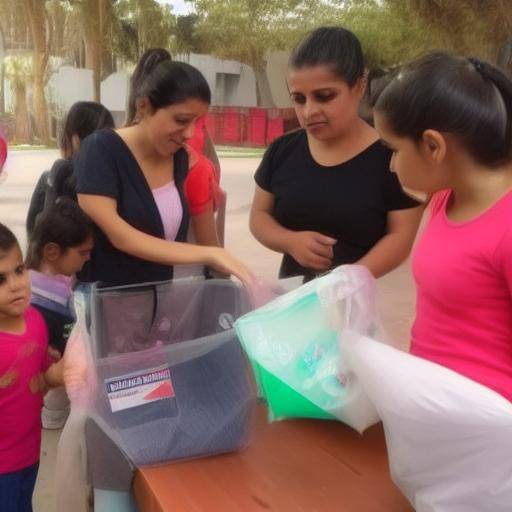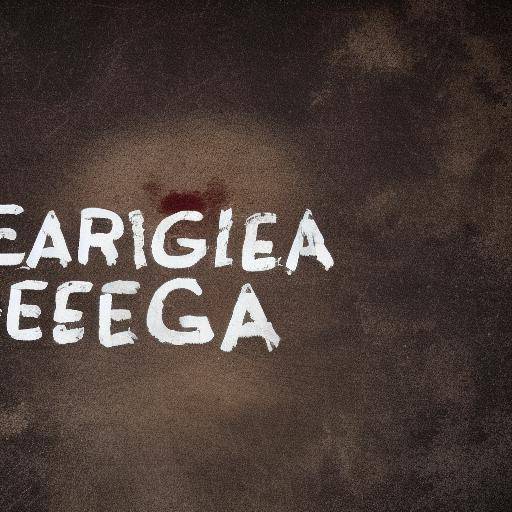
In current society, financial education is crucial to the future success of children. Learning about the value of money, the importance of savings and informed financial decision-making are essential skills. However, teaching these concepts effectively can be challenging, especially when it comes to attracting the attention of the youngest. It is here that the use of games and activities that not only make learning fun, but also have a lasting impact on children's financial understanding.
In this article, we will explore how to use games and activities to teach children about money. From the fun offered by the games to the positive impact on financial learning, we will discover innovative and effective strategies to inculcate a good understanding of finance from an early age.
Fun: The Key to Effective Learning
Learning through the game is one of the most effective strategies to teach children about any topic, including money. The fun offered by the game captures the interest of children in a way that traditional teaching cannot always achieve. Games not only entertain children, but also actively involve them in the learning process.
The Importance of Fun in the Learning Process
Since time immemorial, it has been recognized that fun and learning are inseparable companions. Fun awakens curiosity, stimulates ingenuity and promotes active participation. By learning through fun activities, children absorb and retain information more effectively.
Integrating Fun in Financial Education
When it comes to financial education, fun plays a crucial role in children's commitment. Abstract and often complex concepts can be more accessible through games and play activities. By taking advantage of the playful nature of the games, we can create meaningful experiences that lay the foundation for a solid understanding of money and finance.
Learning Through the Game: Understanding Money Value
The game is a powerful tool to teach children about the value of money. By participating in money-related games, children can experience in the first person how they earn, spend and save money, thus developing a practical understanding of financial concepts.
Financial Rol Games
Financial role games are an effective way of teaching children about the financial decisions they face in real life. By assigning roles and situations of daily life, children can learn to budget, make purchase decisions and understand the consequences of their financial choices.
Simulation Games
Simulation games, such as money-centred table games, provide a safe environment for children to explore complex financial concepts. These games offer valuable lessons on money management, investment and long-term planning, all in a fun and attractive context.
The Durable Impact of Financial Games and Activities
The games and activities that teach children about money have a lasting impact on their understanding and financial skills. Fun and active participation in these games not only facilitate learning, but also establish solid bases for responsible management of money in the future.
Creating Healthy Financial Habits
By learning about money through games and activities, children develop a deeper appreciation for the value of money and the importance of savings. They establish healthy financial habits from an early age, which lays the foundation for a solid financial life in the future.
Promoting informed decision-making
Participation in financial games encourages informed decision-making and responsible money management. Children learn to evaluate options, compare alternatives and consider the long-term implications of their financial decisions, fundamental skills for adult life.
Fostering Trust and Autonomy
By mastering financial concepts through games and activities, children gain confidence in their skills to manage money. This trust helps them to develop a positive attitude towards finance and to feel safer in facing financial challenges in the future.
Practical Tips for Implementing Financial Games and Activities
Now that we understand the importance of fun, learning and the impact of games and financial activities, it is essential to consider how to implement these strategies effectively. Here are some practical tips for parents, educators and caregivers:
- Incorporates simulation games: Use table games, educational applications or online simulations that teach financial concepts in a fun and educational way.
- Power education through real situations: Take advantage of daily situations, such as shopping or planning activities, to teach children about the value of money and financial decision-making.
- Sets savings targets: Helps children set savings targets for future acquisitions, thus fostering the habit of short- and long-term financial planning and savings.
- Encourages open dialogue on finance: Talk openly and honestly with children about financial concepts, using language adapted to their age to ensure their understanding.
- Welcomes financial achievements: Recognizes and rewards the financial efforts of children, thus creating a positive partnership between financial learning and personal success.
- Involve children in family financial decisions: Provide children with the opportunity to participate in appropriate family financial decisions for their age, giving them a practical understanding of the value of money.
FAQs
Why is it important to teach children about money from an early age?
Teaching children about money from an early age provides the basis for a healthy financial life. Learning about the value of money, savings and informed financial decision-making gives them the tools necessary to face financial challenges in the future.
How can I incorporate financial games into the education of my children?
You can incorporate financial games through money-centered board games, educational applications, online simulations and practical activities that teach financial concepts interactively and fun.
What benefits does financial education bring through games and activities?
Financial education through games and activities fosters healthy financial habits, promotes informed decision-making, and increases the trust and autonomy of children in relation to money management.
Are there adequate financial games for different ages?
Yes, there are financial games specifically designed for different age groups. It is essential to select games and activities that are consistent with the level of development and understanding of each child to ensure an effective educational experience.
How can I keep children's interest in financial games over time?
To maintain the interest of children in financial games, it is important to change activities, introduce new challenges and provide incentives and rewards that reinforce financial learning positively.
What is the role of parents and educators in financial education through games and activities?
Parents and educators play a crucial role in providing guidance, support and opportunities for children to learn about money through games and activities. By promoting a positive educational environment, they contribute to the development of a sound financial understanding of children.
Conclusion
Teaching children about money through games and activities is not only an effective way of educating, but also lays the foundation for a healthy financial life. By combining fun, learning and positive impact, we can inculcate strong and lasting financial skills in children, preparing them to confront with confidence the financial challenges of the future. Taking advantage of the playful nature of games and activities offers invaluable opportunities to promote financial understanding and foster responsible financial habits from an early age.
In short, the combination of fun and learning through games and financial activities creates an enabling environment to foster a sound understanding of money and finance in children. By providing them with the necessary tools and knowledge to advance towards a healthy financial life, we are empowering future generations to confront with confidence the financial challenges they are awaiting. Early financial education is an investment in the future of our children, and the creative use of games and activities is a powerful way to lay the groundwork for their long-lasting financial success.






















































